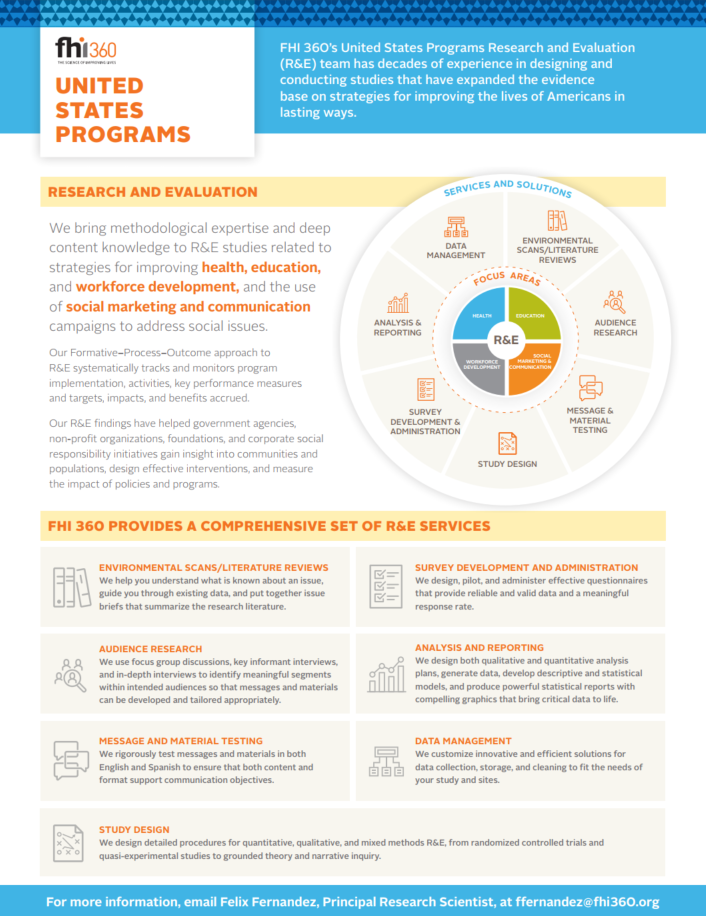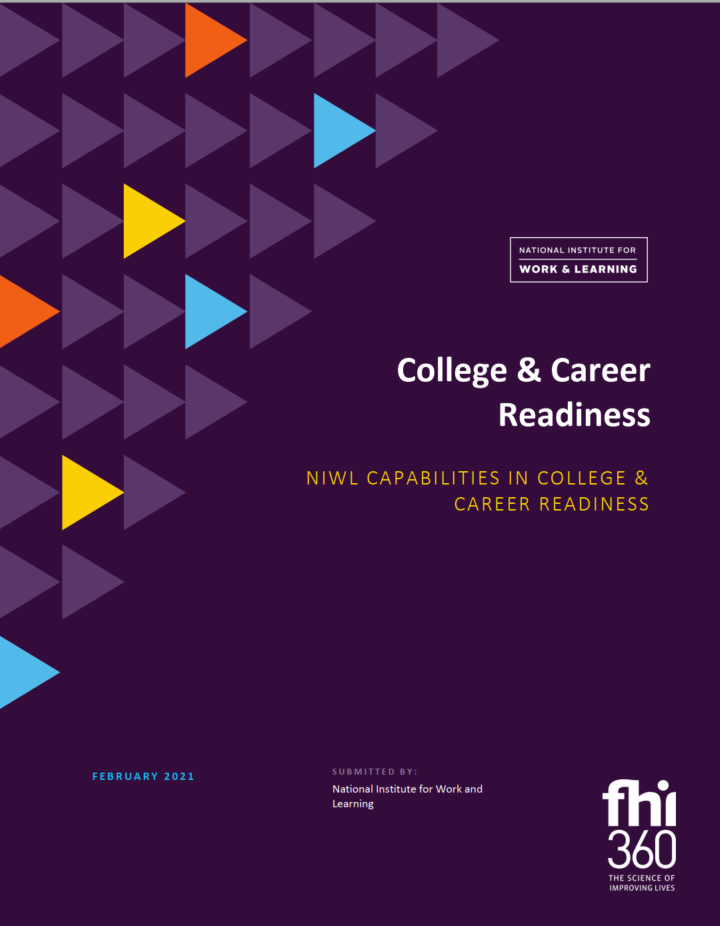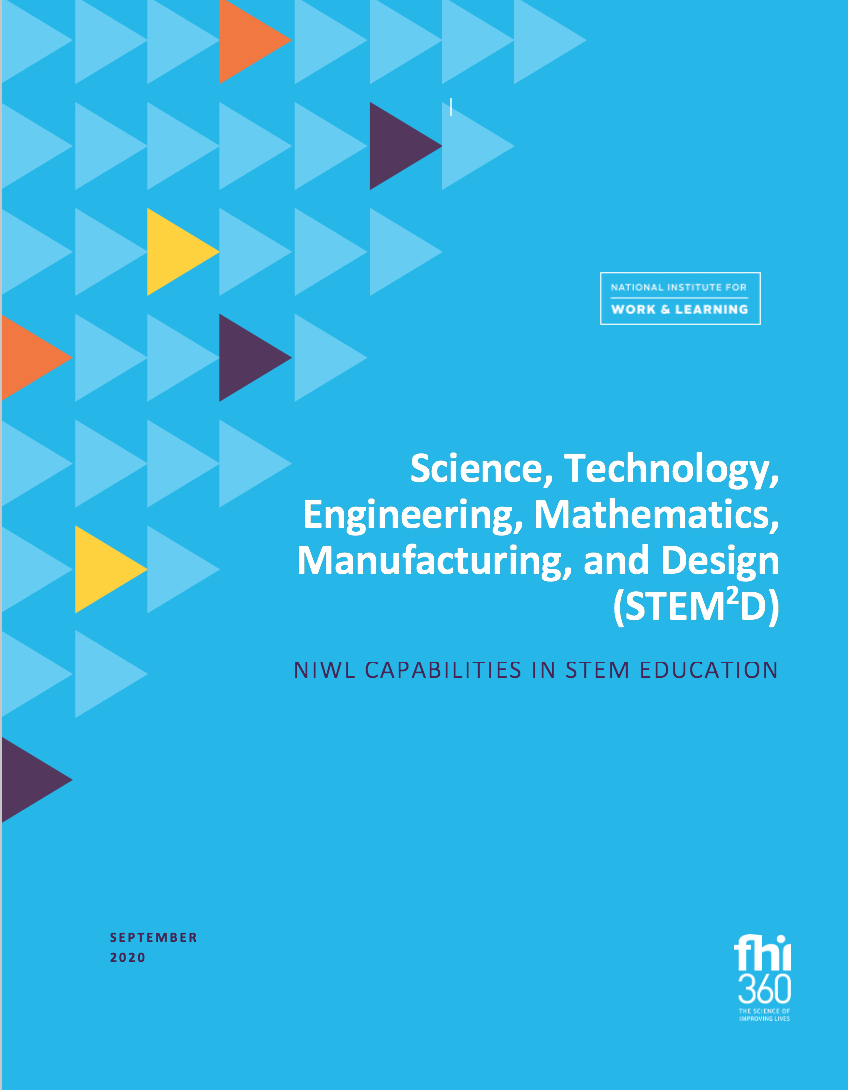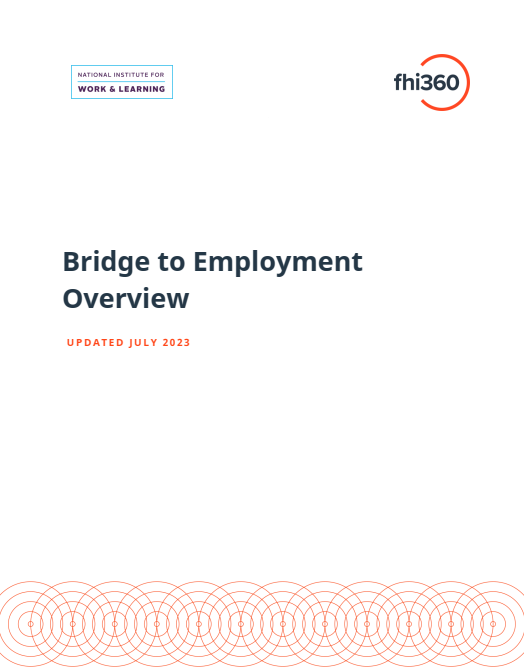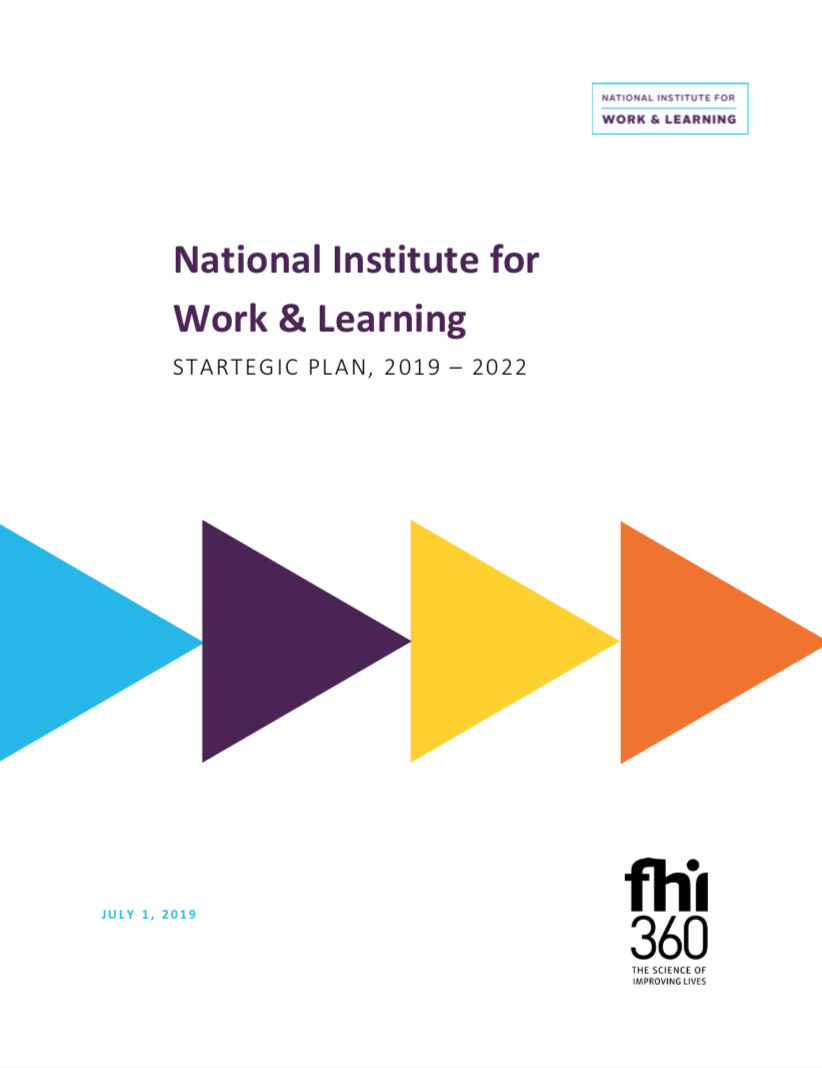This document provides a brief overview of NIWL’s capabilities as it relates to pivoting in person conferences to engaging virtual events
Audience: Funders
This fact sheet profiles FHI 360’s National Institute for Work and Learning (NIWL) workforce development efforts.
This provides an overview of the USBU’s Research & Evaluation services and competencies.
This fact sheet profiles the College & Career Readiness work of FHI 360’s National Institute for Work and Learning (NIWL).
This fact sheet is an overview of NIWL’s work in Science, Technology, Engineering, Mathematics, Manufacturing and Design (STEM2D) education and career readiness.
Launched by Johnson & Johnson in 1992, Bridge to Employment (BTE) inspires young people (14 to 18 years old) to stay in school, excel academically, and elevate their career aspirations. This fact sheet is an overview of the BTE initiative, NIWL’s role, key data and evaluation results.
NIWL’s work under this strategic plan focuses on advancing equitable and accessible education and workforce systems; leading and supporting efforts to prepare the diverse workforce for the demands of the 21st century; and promoting data informed and research-based policies and practices.



